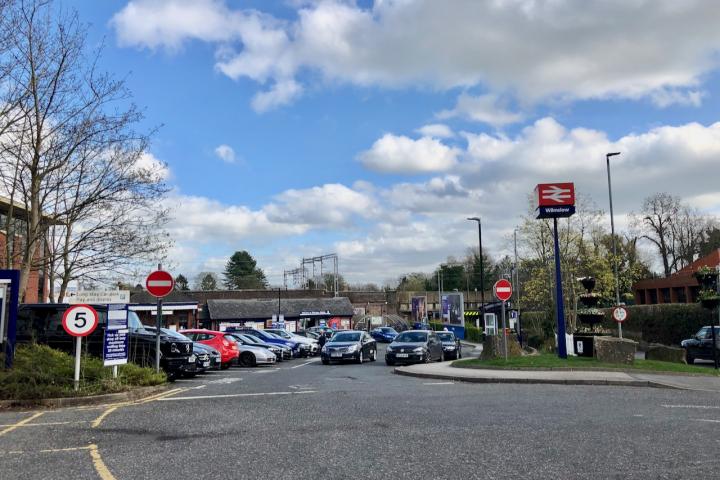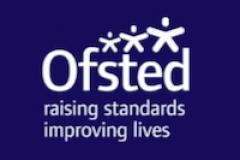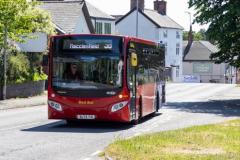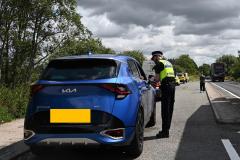
Figures obtained from the British Transport Police (BTP) via a Freedom of Information Request have revealed the number and type of crimes which have been committed at local railway stations during a 12 month period.
At Wilmslow Station there were 23 crimes recorded between August 2018 and July 2019, these included 7 thefts of cycles, 6 assaults, 2 incidents of criminal damage to a cycle, 1 of harassment, 2 of theft from a person along with 1 public order offence of violence, 1 public order racially or religiously aggravated, 1 of damage to a building, 1 robbery and 1 burglary of cabins.
During the same period 6 crimes were recorded at Alderley Edge Station - 1 each of harassment, affray, common assault, theft from a person, damage to a vehicle and malicious obstruction.
In Handforth 4 there were 4 recorded crimes - 2 of harassment, 1 of public order racially or religiously aggravated and 1 of fear of violence.
Whilst at Styal Station there were 2 thefts of plants and 1 robbery of personal property.
In comparison during the same period 44 crimes were recorded at Macclesfield Station and 12 at Knutsford Station..
The BTP recently released figures for the year 1st April 2018 to 31st March 2019 show that becoming a victim of serious or violent crime on the British rail network continues to be rare, with less than one serious crime per million passenger journeys during 2018/19.
However, with millions more passengers now using the railway across England, Scotland and Wales, the Force has seen an increase in recorded crime. In 2018/19 there were 68,313 notifiable crimes compared to 60,867 in 2017/18, an increase of 12%.
Deputy Chief Constable Adrian Hanstock, said: "Like forces throughout Britain, we have seen an increase in notifiable crime within the national network. With record levels of passengers using the railway, we anticipated there could be a subsequent rise in crime. As stations become increasingly commercial environments, a large proportion of this increase is as a result of theft of passenger property, anti-social behaviour or shoplifting.
"Despite this increase, when put into context it is important to remember that the chance of becoming a victim of crime on the railway is very low. We now police more than 3.3billion journeys each year, the equivalent of a third of the world's population passing through our jurisdiction. Of course, any rise in crime is of concern to us and we are tackling this head on through our problem-solving initiatives at key locations."
During 2018/2019, the Force also saw a large increase in demand in relation to vulnerable people; both in terms of suicide prevention and supporting those experiencing mental health issues. Over the course of the year, BTP saw a 32% increase in the number of lifesaving interventions by police and members of rail staff.
DCC Hanstock said: "It is troubling that the railway still attracts those in mental health crisis; officers and rail staff work incredibly hard to safeguard those with vulnerabilities and help them access the most appropriate care and support. I am immensely proud of what they each do every day to protect people experiencing crisis in their lives. Remarkably, 2,529 lives were saved as a result of their compassionate intervention.
"However, our safeguarding priorities are not all focused towards mental health provision. Of particular concern to us is the growing issue of exploitation through "County Lines" drug trafficking. We've set up dedicated teams to oversee this important area of safeguarding, sharing valuable intelligence with our national partners including the National Crime Agency. As a result of our close collaboration with other law enforcement partners, large quantities of drugs have been seized and importantly, a number of vulnerable youngsters have been protected from these toxic criminal networks."
DCC Hanstock added: "The rail environment is rapidly changing. Just a decade ago, the railways were simply a method of travel but today some of our stations are destinations in their own right. As an example of this change, many London stations are increasingly popular shopping destinations and also offering a host of busy restaurants and bars. In Leeds, there are a number of lively nightclubs established in the rail arches and Birmingham New Street station doubles as a major shopping centre.
"In 10 years it is likely the picture will be as equally different as the railway continues to expand. I am excited about the next steps for British Transport Police, as we modernise and adapt the Force to compete with the diversifying railway, its growing number of passengers and visitors and the new challenges this will bring."










Comments
Here's what readers have had to say so far. Why not add your thoughts below.
Not long ago I traveled to London and back, first class, for £31 each way using 'advance' tickets. That included an excellent at-seat meal service with regular tea / coffee and a couple of visits by the drinks trolley for a nice G&T, sipped at 125mph in superb comfort. One hour 47 minutes Wilmslow to Euston. Pretty good value I think.
This a contributing to the all day commuter parking issues Wilmslow has. Ex colleagues of mine used to drive from Alderley into Wilmslow to catch cheaper and more frequent trains into the city. Not good for the environment or Wilmslow residents but makes financial sense I guess.
The result is DfT are finding it increasingly difficult to get credible operators to take on Franchises, which is one reason why the franchise system is currently under review. National Express, for instance, now runs trains on German railways rather than UK.